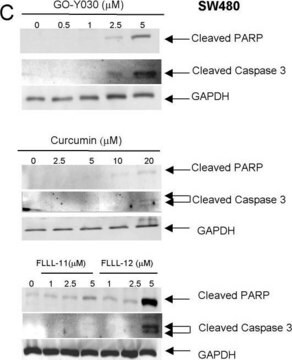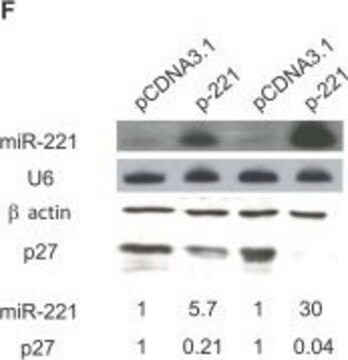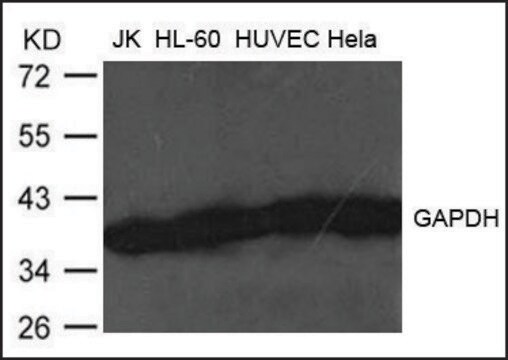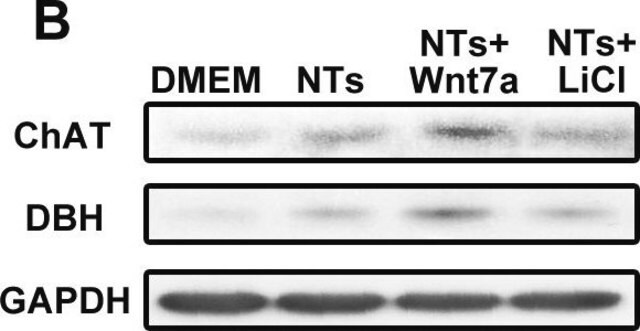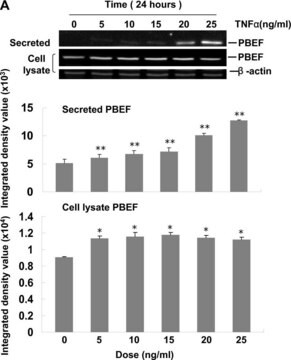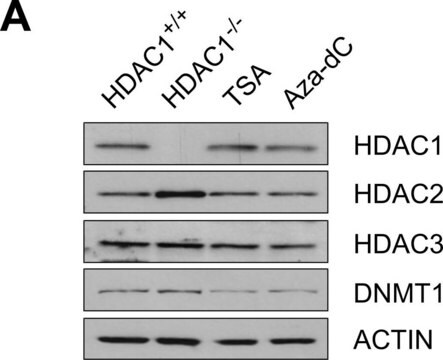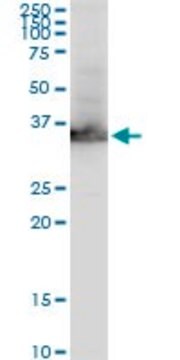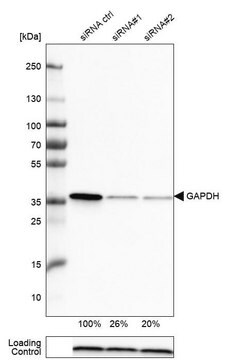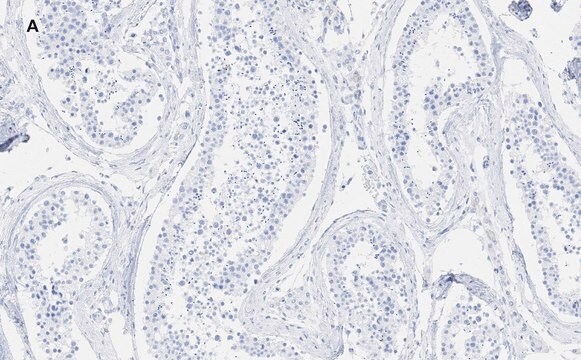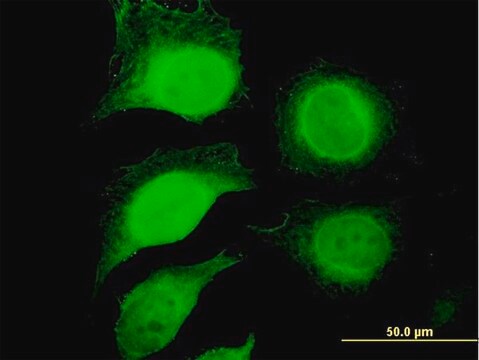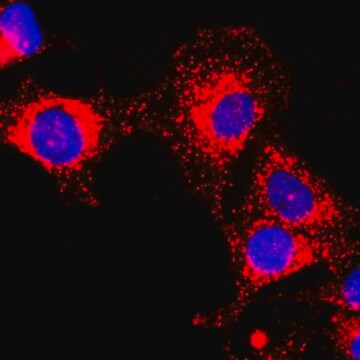G9545
Anti-GAPDH antibody produced in rabbit
~1 mg/mL, affinity isolated antibody, buffered aqueous solution
Sinônimo(s):
Anti Gapdh, Anti Gapdh Antibody, Anti-Gapdh, GAPDH Antibody - Anti-GAPDH antibody produced in rabbit, Gapdh Antibody, Gapdh Antibody Sigma, Anti-38-kD component, Anti-G3PD, Anti-GAPD, Anti-Glyceraldehyde-3-phosphate dehydrogenase, Anti-OCAS, Anti-OCT1 coactivator in S phase, Anti-p38 component
About This Item
Produtos recomendados
fonte biológica
rabbit
Nível de qualidade
conjugado
unconjugated
forma do anticorpo
affinity isolated antibody
tipo de produto de anticorpo
primary antibodies
clone
polyclonal
forma
buffered aqueous solution
peso molecular
antigen ~36 kDa
reatividade de espécies
mouse, rat, human
concentração
~1 mg/mL
técnica(s)
immunoprecipitation (IP): 5-10 μg using mouse NIH3T3 cell lysates
indirect immunofluorescence: 5-10 μg/mL using rat NRK cells
western blot: 0.1-0.2 μg/mL using whole extract of human HeLa cells
nº de adesão UniProt
Condições de expedição
dry ice
temperatura de armazenamento
−20°C
modificação pós-traducional do alvo
unmodified
Informações sobre genes
human ... GAPDH(2597)
mouse ... Gapdh(14433)
rat ... Gapdh(24383)
Categorias relacionadas
Descrição geral
Especificidade
Imunogênio
Aplicação
- human cancer cell extract
- extract from muscle tissue from old mice exhibiting sarcopenia
- trabeculae or samples of the mice heart myocardium
- mouse embryonic fibroblasts
Ações bioquímicas/fisiológicas
forma física
Armazenamento e estabilidade
For extended storage, freeze in working aliquots. Repeated freezing and thawing, or storage in “frost free” freezers, is not recommended. If slight turbidity occurs upon prolonged storage, clarify the solution by centrifugation before use. Working dilutions should be discarded if not used within 12 hours.
Exoneração de responsabilidade
Não está encontrando o produto certo?
Experimente o nosso Ferramenta de seleção de produtos.
Código de classe de armazenamento
10 - Combustible liquids
Classe de risco de água (WGK)
WGK 1
Equipamento de proteção individual
Eyeshields, Gloves, multi-purpose combination respirator cartridge (US)
Certificados de análise (COA)
Busque Certificados de análise (COA) digitando o Número do Lote do produto. Os números de lote e remessa podem ser encontrados no rótulo de um produto após a palavra “Lot” ou “Batch”.
Já possui este produto?
Encontre a documentação dos produtos que você adquiriu recentemente na biblioteca de documentos.
Os clientes também visualizaram
Artigos
The field of proteomics is continually looking for new ways to investigate protein dynamics within complex biological samples. Recently, many researchers have begun to use RNA interference (RNAi) as a method of manipulating protein levels within their samples, but the ability to accurately determine these protein amounts remains a challenge. Fortunately, over the past decade, the field of proteomics has witnessed significant advances in the area of mass spectrometry. These advances, both in instrumentation and methodology, are providing researchers with sensitive assays for both identification and quantification of proteins within complex samples. This discussion will highlight some of these methodologies, namely the use of Multiple Reaction Monitoring (MRM) and Protein-AQUA.
Loading controls in western blotting application.
We presents an article about the Warburg effect, and how it is the enhanced conversion of glucose to lactate observed in tumor cells, even in the presence of normal levels of oxygen. Otto Heinrich Warburg demonstrated in 1924 that cancer cells show an increased dependence on glycolysis to meet their energy needs, regardless of whether they were well-oxygenated or not.
Nossa equipe de cientistas tem experiência em todas as áreas de pesquisa, incluindo Life Sciences, ciência de materiais, síntese química, cromatografia, química analítica e muitas outras.
Entre em contato com a assistência técnica

